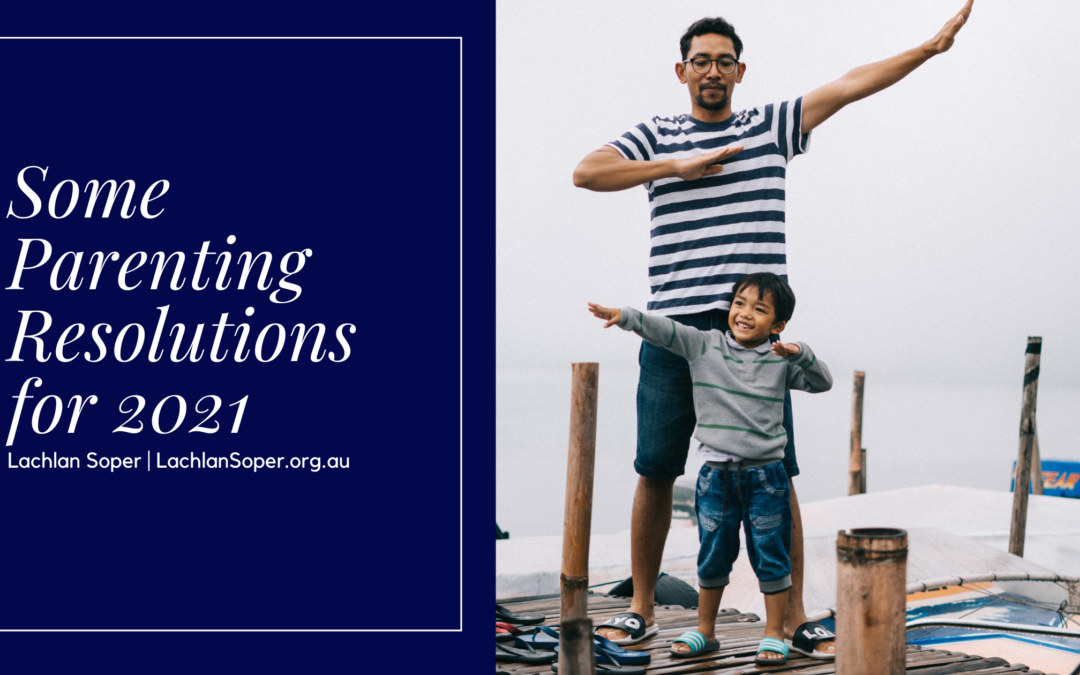The start of a new year is a great time to think about what you’d like to achieve for yourself and your family and the things that you’d like to encourage your kids to do. Here are some ideas to make 2021 more rewarding for your family.
1. Minimise the screens and plan time as a family
In today’s society it is easy to default to a screen. It may be to watch or play something for entertainment, it may be for work, emails or social media. But screens make us all individuals in our own household, even if we’re sitting in the same space. Try to minimise the time that you are with the kids and multitasking on a screen or going through the mail. If possible ditch the multitasking as it will often result in the kids seeking the attention that they deserve from their parents in other ways – nagging, interrupting, whinging, fighting…
Consider writing a list of all the activities you could do (or have done) with the kids as a family, printing it off, laminating it and sticking it to the fridge with Blue Tack. At the beginning of each day (weekends or holidays) or after school (schooldays), sit down with the kids together for a few minutes and ask them to each pick things out of the list that they want to do. That way they have had input, they get attention and some level of power. The list after school may look like: Play Connect 4, catch balls, jump on the trampoline, read, play tip…. This list would be in addition to the usual family contributions and dinner and bedtime routines.
2. Enjoy exercise in the outdoors as a family
Riding bikes, walking and going to playgrounds together are some of my favourite ways to exercise outdoors as a family. And they are just the start because there are so many ways you can get outdoors and have fun together. Being outdoors, you may find there is less bickering and wanting to use the same toys than if indoors.
I have written a number of articles about exercising as a family:
- 5 Cycling Tips for Beginners
- Tips for a Safe Ride While Cycling
- Fun Outdoor Activities for the Family
- Getting Fit and Healthy as a Family
3. Prioritise sleep – for all the family
Kids need at least 9 hours of sleep a night and adults 7-8&½ hours (rough guides). Sleep deprivation can affect behaviour (tantrums, grumpiness, argumentativeness), concentration, performance at work and school, has many other negative health effects and generally saps our joy. It’s a great first priority for the physical, mental and emotional wellbeing of the family.
4. Lead from the front
Model service. Model doing the “chores” or tasks or family contributions around the home. And, take the kids with you on the journey. Get their help in most things around the home, they may moan at first, but in time they will see that the whole family contributes as one for the wellbeing of the whole unit.
Consider explaining at the start of each day or when you get home from being out or home from school what the expectations are regarding jobs / chores / tasks / contributions. AND, do them with the kids. If the kids do them and the parents don’t, what kind of example does that set? If they’re struggling with their tasks, then train and help them.
5. Never be afraid to apologise and ask for forgiveness
As parents we will always make mistakes, we are human. Do we really want to present the veneer that we’re perfect or do no wrong? Our kids see us at our best, our worst, our most tired, grumpy and all our emotional states. They know we are not perfect.
Being a parent is an opportunity to model responsibility. Do kids naturally take responsibility? What’s the first thing that often comes out of a child’s mouth when they’ve done something wrong or are caught? “I didn’t do it… He / she did it …It was him / her … He / she made me do it….”. It’s human nature to want to deflect blame. We admire leaders of society and sporting captains who shoulder the responsibility for when the team doesn’t perform (even if they personally had a cracking performance). Let’s model that to our kids. If we stuff up, it’s actually an opportunity to model putting the hand up, gathering the kids around and taking responsibility. For example: “I’m sorry we were late for school, it was my responsibility because…”, “I’m sorry we didn’t get to the ice cream shop for the special treat like I had told you we were going to do. It was closed and I should have checked first and made better plans”, “I’m sorry I was a little grumpy this morning, it’s my responsibility because I stayed up late working and didn’t get enough sleep”. If we, as parents, as adults, model taking responsibility, apologising, and then importantly asking our children for forgiveness (which they can choose not to give), then it models healthy ways of relating to others.
Leading from the front and modeling responsibility build character.
6. Seek feedback from the kids about what they would like as individuals and as a family
This gives them some level of power and attention (which all kids seek), input and responsibility with regards to their family. This could take the form of seeking their input as to what activities they want to do after school, or what activities they would like to achieve in a week of the holidays. It could also take the form of asking them whether they would like more 1-on-1 time with you as a parent and brainstorming with them ways that that can be achieved…
7. Endeavour to get 10-15 minutes of one-on-one time with each child each day
If you have 3 children, it’s possible in 30-45minutes for you to have 10-15 minutes of one-on-one time with each child each day. Within reason they determine what you do each day – it could be jumping on the trampoline with them, playing dolls, creating Lego structures, catching, balls, reading books to them, chatting… the list is endless. It is focused time – no phone interruptions, emails, texts or anything else. Surely those things can wait for one small portion of each day?!
Try it for one school term as a starter. Evaluate at the end of the term. Were the relationships within the family enriched by marking out this time? I bet they will be.
From spending more time as a family (points 1&2), developing character (points 4&5) and seeking feedback and 1-on-1 time with the kids (points 6&7) it is in these ways, both by observation and giving children the space to ask questions that values are instilled in them. It is our responsibility as parents to instil core values in our children, if we don’t do it society isn’t short of other people who will fill that void – scriptwriters, entertainers, journalists and teachers all influence our children’s values. Do we want to leave that important task up to other people, or shoulder that responsibility ourselves? Parents, when it comes to instilling values into your children, ask yourself this: if not you, then who? If not now, then when?

